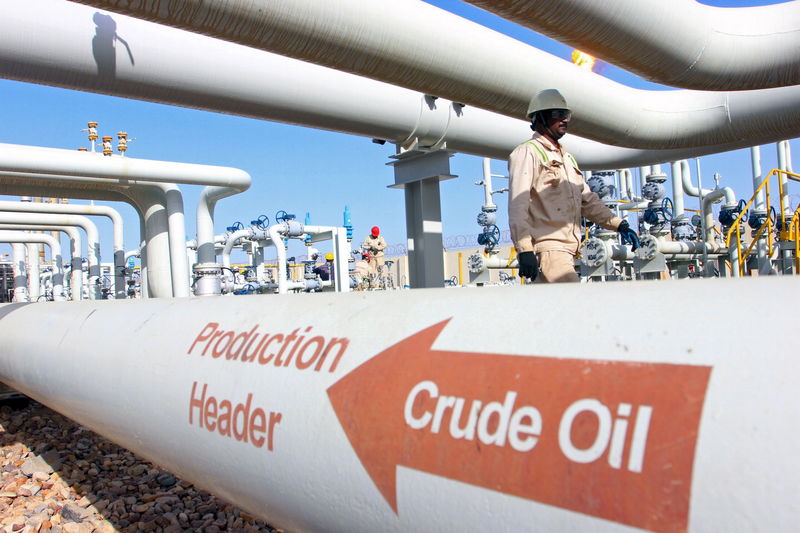By Peter Nurse
Investing.com -- Crude oil prices pushed firmly higher Tuesday, climbing to the highest levels in more than two years, on expectations the global economic recovery will lead to growing fuel demand.
By 9:05 AM ET (1405 GMT), U.S. crude futures traded 3.6% higher at $68.72 a barrel, climbing to its highest level since September 2018, while the international benchmark Brent contract rose 2.8% to $71.23, after earlier climbing above $71 for the first time since March 8.
U.S. Gasoline RBOB Futures were up 3.1% at $2.2025 a gallon.
Recent economic data have pointed towards a relatively robust economic recovery in the U.S., the biggest oil consumer in the world, but large parts of the globe also appear to be heading in the right direction.
Earlier Tuesday, in China, the world’s top oil importer, data showed that the country's factory activity grew at its fastest this year in May. There was a similar picture in Europe, as Eurozone manufacturing activity expanded at a record pace in May.
“In the U.S., the summer driving season officially got underway following the Memorial Day weekend, and we have entered this period with gasoline inventories already trending lower, and not too far from a 5-year low for this time of the year,” said analysts at ING, in a research note. “Given that demand is expected to continue edging higher, this suggests that we will only see a further tightening in the U.S. gasoline market.”
Adding to the positive tone was a report from a technical committee of the Organization of the Petroleum Exporting Countries and allies, a group known as OPEC+, which pointed to a tightening global market ahead of a production policy meeting.
The oil glut built up during the pandemic has almost gone and stockpiles will slide rapidly in the second half of the year, according to an assessment of the market from the committee.
The cartel is widely expected to ratify a scheduled output increase for July when it concludes its meeting later Tuesday, despite a possible increase in Iranian output.
"We believe that the market will be able to absorb this additional supply, and so would expect the group to confirm that they will increase output as planned over the next two months," ING added.
Iran and global powers have been negotiating since April to work out steps needed to revive the 2015 nuclear accord, which could result in the Persian Gulf country restarting its crude exports.
On Monday, a report from the U.N. nuclear watchdog showed that Iran had failed to explain traces of uranium found at several undeclared sites, possibly setting up a fresh diplomatic clash with the potential to derail the talks.
